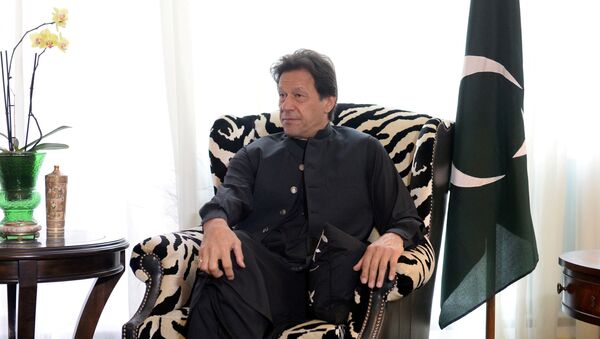In an article published in The New York Times online edition, Ambassador Harsh Vardhan Shringla, New Delhi’s envoy to Washington wrote Kashmir is “now in transition” and “many of the restrictions on travel and communications intended to ensure public order and safety have since been relaxed".
Shringla’s article comes in the run-up to the Indian prime minister’s visit to the United States, slated to start Saturday (21 September). The envoy said New Delhi’s decision was to “correct a historic wrong….to open the door to rejuvenate a moribund economy”.
“Under Prime Minister Khan’s watch, the people of Pakistan are reeling under economic depression, with inflation at a five-year high, national debt exceeding gross domestic product and an International Monetary Fund bailout for the 22nd time", Shringla’s article reads.
Shringla wrote the Pakistani prime minister has every right “to run his economy into the ground. But his determination to inflict similar damage on the province of a neighbouring country must be challenged by the international community".
“Clearly, this prospect for a more prosperous Jammu and Kashmir, and Ladakh, cuts the ground under the feet of Pakistan. Its prime minister claims that he offered to work for peace, progress and prosperity with India. What he does not say is that the assembly line of terrorists that is a major industry of his country continues without pause".
The Indian envoy rejected Pakistan’s claim over Jammu and Kashmir saying that India has not changed its boundaries “Nor has the Line of Control with Pakistan been affected".
“Development will happen, progress will be visible, prosperity will take root and terrorism will fail. And India will hope that Pakistan renounces hostility, violence and terrorism to become the normal neighbour that all of South Asia desires", said Shringla in his article.
Islamabad, which claims to be a stakeholder in Kashmir, rejected India's revocation of the region's special status and declared a diplomatic offensive against it.
Kashmir has been a bone of contention between the two, since they gained freedom from British colonial rule in 1947. Both control part of Kashmir, but claim in full. They've also fought three wars since then, two on Kashmir.




